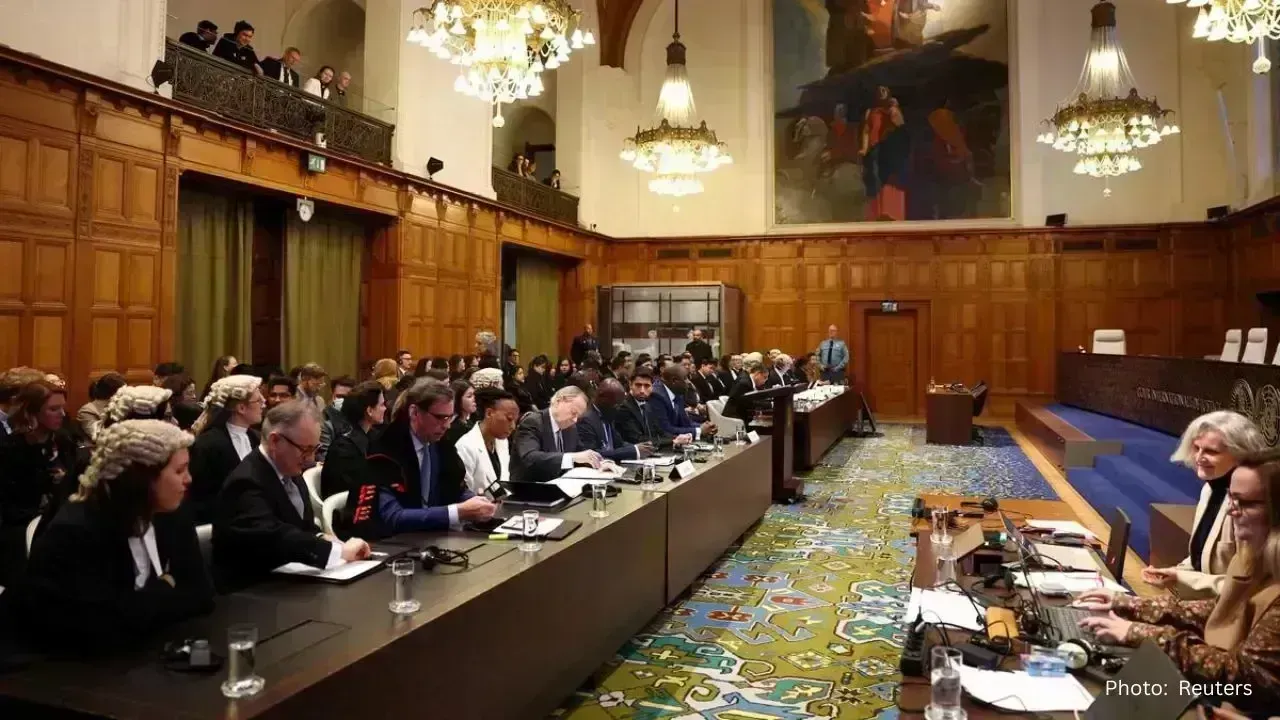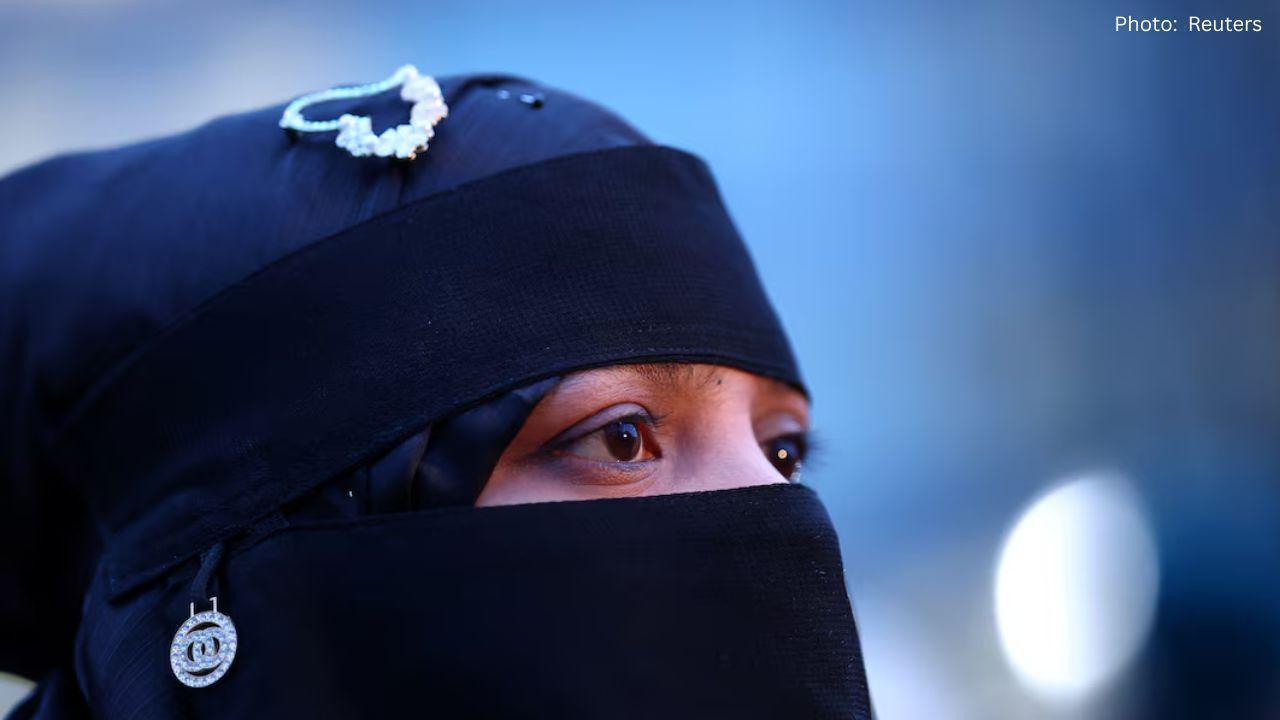You have not yet added any article to your bookmarks!

Join 10k+ people to get notified about new posts, news and tips.
Do not worry we don't spam!

Post by : Meena Ariff
The television industry is once again buzzing with the news of Jay Bhanushali and Mahhi Vij’s separation. The celebrity couple, who once symbolized marital stability, has reportedly finalized their divorce after nearly 14 years of marriage. Sources suggest that the legal formalities were completed between July and August 2025, marking the end of a relationship that had long been admired by fans.
Though the couple has not issued official statements, reports indicate they had been living separately for some time before formalizing the split. Attempts at reconciliation were made, but differences proved irreconcilable. The custody arrangements for their children are said to be settled privately.
Beyond the headlines and public curiosity lies a more serious subject — family instability and how divorce affects children emotionally and psychologically.
A divorce occurs when two individuals choose to end their marriage, usually after prolonged emotional, personal, or financial conflicts. Common reasons for divorce include infidelity, lack of communication, absence of intimacy, incompatibility, and growing emotional distance.
In India, marital expectations are deeply rooted in cultural traditions, yet modern influences are reshaping perceptions. The shift from traditional joint families to fast-paced urban living has led to greater stress, longer work hours, and less time for emotional connection.
As society becomes more progressive, the stigma around divorce is slowly fading. Many individuals today prioritize mental peace and personal growth over societal expectations.
Although India’s divorce rate remains low compared to global averages, it has steadily increased over the past decade. Several factors contribute to this shift:
Jay and Mahhi’s separation reflects a growing social trend that extends beyond celebrity culture — the rise in family instability.
A study published by PubMed Central highlights that “an increasing number of children worldwide experience family instability due to divorce, separation, or cohabitation.” According to the same study, only about 60% of children in the United States live with both married, biological parents — one of the lowest figures globally.
Research from the National Library of Medicine (2019) indicates that parental separation is linked to a higher likelihood of academic difficulties, behavioral challenges, and symptoms of anxiety or depression among children.
However, these are possibilities, not certainties. Many children of divorced parents grow into emotionally strong, successful adults. Experts agree that the biggest deciding factors are how respectfully the separation is managed and the strength of the support system surrounding the child.
For children, divorce is not just a legal event — it’s an emotional transition that alters their sense of security. Initially, they may show signs of anger, confusion, or sadness. Over time, if unresolved, these feelings can develop into trust issues or fear of abandonment.
A 2025 study by the National Bureau of Economic Research found that divorce often leads to a decline in household income, lower neighborhood quality, and reduced contact with the non-resident parent. These factors can significantly affect a child’s sense of stability and belonging.
Rajat (name changed), a 22-year-old university student, shared his experience: “When my parents separated, it felt like my world had split in two. I often felt torn between love and loyalty. Even now, I sometimes fear that people I care for will eventually leave.”
His story reflects what many children experience — an emotional ripple effect that can last long after the divorce itself.
Studies also suggest that children of divorced parents are statistically more likely to face relationship instability in adulthood. Research from FamilyMeans.org reports that such children are two to three times more likely to experience divorce themselves, underscoring the long-term emotional impact of parental separation.
How Parents Can Make a Difference
Experts emphasise that how parents handle a divorce profoundly affects their children’s well-being.
To reduce emotional strain, parents should:
Across several countries, shared parenting is increasingly recognised as beneficial. In the U.S. and Europe, joint custody arrangements account for 15–50% of post-divorce parenting setups. The trend encourages both parents to remain equally involved, ensuring emotional continuity for the child.
While divorce marks the end of a marriage, it also opens a new chapter of growth and emotional adjustment. Children are resilient when surrounded by love, consistency, and honesty. The goal for separating couples should always be to protect their children’s emotional health — even if their partnership ends.
The story of Jay Bhanushali and Mahhi Vij is not just about a celebrity split; it mirrors a societal shift in how families evolve, redefine themselves, and adapt. As more individuals choose emotional authenticity over forced togetherness, the conversation must shift from judgment to understanding — focusing on compassion, communication, and above all, the well-being of children.










Indian Idol 3 Star Prashant Tamang Passes Away in His Sleep
Beloved singer-actor Prashant Tamang dies naturally in sleep. Fans and family pay emotional tributes

World No.1 Aryna Sabalenka Begins Australian Open Without Title Defence
World No.1 Aryna Sabalenka starts her Australian Open campaign as favourite, but without a defending

EU-India Free Trade Deal May Be Signed This Month, Says Merz
German Chancellor Merz hints at a possible EU-India free trade agreement signing by January end afte

Japan Expands Security Aid Across Southeast Asia with $147M Boost
Japan doubles OSA budget to $147M, expanding military support to ASEAN nations, boosting regional se

Eruption of Mount Semeru: Pyroclastic Flow Extends 5 km, Ash Clouds Reach 2 km
Mount Semeru erupted at 10:25 p.m., producing a 5 km pyroclastic flow and a 2 km high ash column. Re

Deadly Bushfires in Victoria Leave One Dead, 300 Structures Lost
Bushfires across Victoria have destroyed hundreds of homes, claimed one life, and forced evacuations